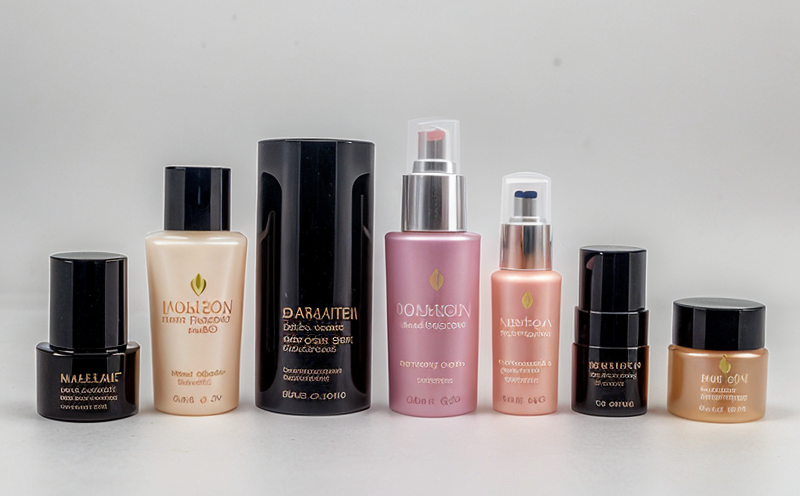Seal Integrity Testing in Cosmetic Containers
In today’s highly competitive cosmetic industry, ensuring product integrity is paramount. Seal integrity testing plays a critical role in maintaining the quality and safety of cosmetic containers, thereby protecting consumer health and trust. This service ensures that seals within cosmetic containers are robust enough to prevent leaks and contamination, which is especially important given the volatile nature of many cosmetic products.
The seal integrity test simulates real-world conditions to evaluate how well a container’s closure system will perform under normal use. It assesses whether the container can retain its contents without leaking or allowing external contaminants to enter. This service is particularly relevant for containers holding moisture-sensitive, volatile, and high-value products such as serums, lotions, and perfumes.
The testing process involves subjecting the container to various stress conditions that mimic normal handling and storage scenarios. For example, containers may be subjected to temperature cycling (both hot and cold) to simulate extreme weather conditions. Additionally, vacuum tests can be conducted to check for leaks under pressure changes that might occur during shipping or use.
Apart from the physical integrity of the seal, this service also evaluates the compatibility between the container material and the product it contains. This is crucial because certain chemicals in cosmetics could potentially react with the container material, leading to off-flavors, colors, or even chemical contamination. Compatibility tests ensure that no such adverse reactions occur.
The testing equipment used for this service adheres strictly to international standards like ISO 15067-2 and ASTM D4383. These standards provide a framework for conducting these types of tests accurately and consistently across different laboratories. By following these guidelines, we ensure that our results are reliable and can be trusted by regulatory bodies.
The outcome of the seal integrity test is reported comprehensively, detailing any defects or failures observed during testing. Reports typically include visual images of failed specimens, detailed descriptions of failure modes, and recommendations for improvement where necessary. This information is invaluable to R&D teams who can use it to refine their formulations and improve container designs.
Our team of experts ensures that every step of the process—from specimen preparation to final reporting—is conducted with precision and attention to detail. With years of experience in this field, we pride ourselves on delivering accurate, reliable results that exceed industry expectations.
Applied Standards
- ISO 15067-2:2019 – Methods for the Determination of Seal Integrity of Packaging
- ASTM D4383: Standard Test Method for Leak Rate by Pressurized Fluid Technique
- EN 13424:2015 – Packaging for Cosmetics and Toiletries
These standards provide the necessary protocols to ensure that our testing methods are consistent with industry best practices.
Industry Applications
- Evaluating the effectiveness of cap and bottle designs for various cosmetic products
- Ensuring compliance with regulatory requirements regarding seal integrity
- Improving product quality by identifying potential leaks or contamination points early in the development process
- Assisting manufacturers in selecting appropriate container materials that are compatible with their specific formulas
Competitive Advantage and Market Impact
By offering Seal Integrity Testing in Cosmetic Containers, we provide our clients with a strategic advantage. In an era where consumer trust is increasingly important, reliable seal integrity testing can help build brand reputation and enhance consumer satisfaction.
This service not only ensures product safety but also contributes to the overall sustainability of cosmetic packaging by reducing waste caused by compromised containers. It supports efforts towards responsible sourcing and manufacturing practices, aligning with global trends in corporate social responsibility (CSR).
Moreover, compliance with international standards strengthens a company’s position within competitive markets, making it easier to navigate regulatory landscapes across different countries. This can open up new opportunities for expansion into emerging markets.





